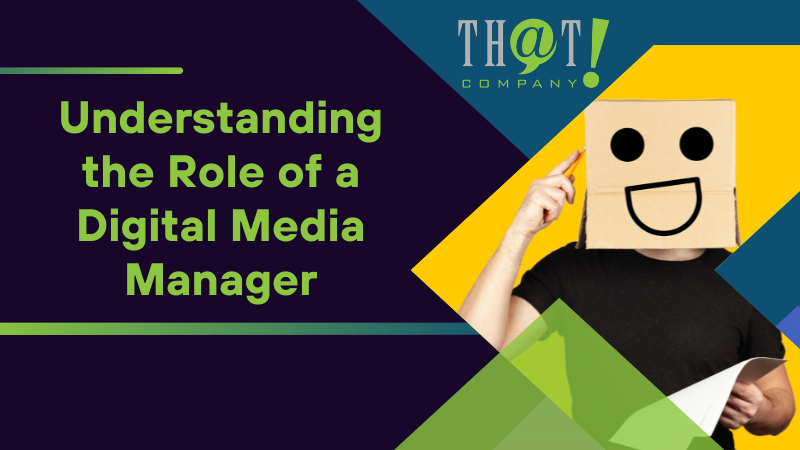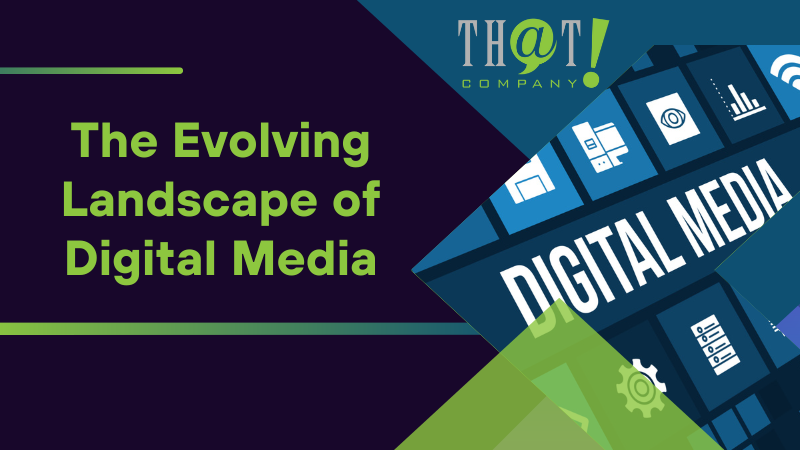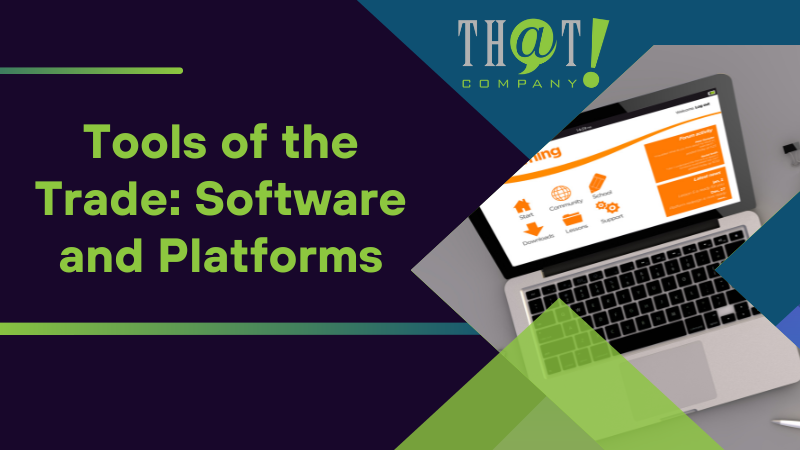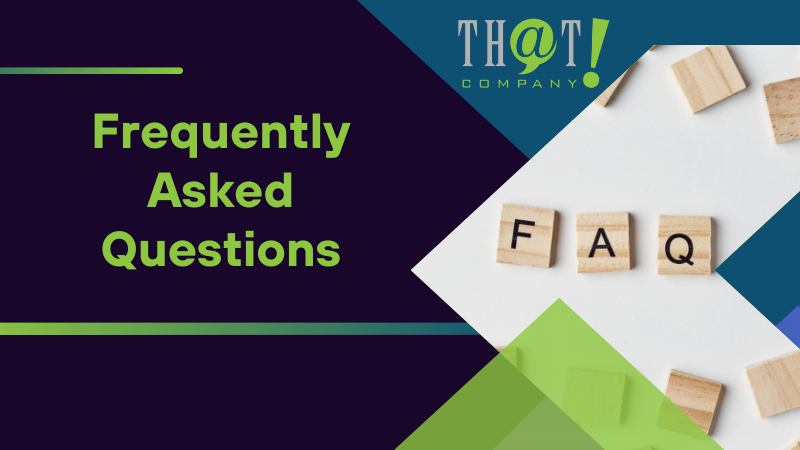
A digital media manager is at the forefront of shaping an organization’s online presence, tasked with campaign management, content strategy, and data analysis. If you’re aiming to navigate this career path or enhance your expertise, our guide covers the crucial skills and insights needed to thrive in this vital role.
Key Takeaways
- A Digital Media Manager oversees campaign management, content strategy, and analytics to align marketing campaigns with business goals, ensuring brand consistency and maximizing the impact of digital marketing strategies.
- The career path to becoming a Digital Media Manager includes obtaining a relevant educational background, accumulating hands-on experience, and developing essential skills in strategic communication, social media, SEO, SEM, and analytics.
- Advanced digital marketing extends beyond social media, encompassing search engine marketing, email marketing, website optimization, and team management, while utilizing tools for analytics, campaign management, and creative design to adapt in a rapidly changing digital landscape.

Understanding the Role of a Digital Media Manager
A digital media manager is a modern-day alchemist, blending the science of problem-solving with the art of creativity to transform ordinary content into digital gold. The role is as dynamic as the digital realm itself, demanding constant learning and adaptability.
Every workday brings with it a new set of challenges and opportunities, requiring a diverse set of skills including:
- An innovative mindset
- A hunger for change
- A love for feedback
- Patience
- Active listening
- Competent communication
The Core Responsibilities
At the heart of a digital media manager’s role, the digital media manager oversees key responsibilities such as campaign management, content strategy development, and monitoring analytics for optimization. The account manager ideates, selects appropriate media, negotiates, and executes media strategies, all while aligning the content with campaign goals.
This role extends to monitoring analytics, enabling the continual optimization of media execution for better client outcomes.
Strategic Oversight
A digital media manager’s strategic oversight involves:
- Aligning marketing campaigns with overarching business goals
- Maintaining brand consistency on all digital platforms
- Allocating budgets strategically to maximize the impact of digital marketing campaigns.
Continuous campaign optimization is a core part of their strategic oversight, ensuring the effectiveness and success of digital campaigns.
Interdepartmental Coordination
Interdepartmental coordination is another essential aspect of a digital media manager’s role. They work closely with marketing teams to ensure that social media strategies are aligned with the overarching marketing goals, establishing a consistent brand identity. This coordination streamlines collaboration and enhances strategic decisions, reflecting the integration of social media technology into business systems.

Crafting a Career as a Digital Media Manager
Becoming a digital media manager is not just a job change; it’s a career leap that requires a relevant educational background, hands-on experience, and continuous skill development.
A degree in Digital Media can provide a foundational education, covering essential topics such as graphic design, video production, digital marketing, and web development.
Educational Background
Educational requirements for aspiring digital media managers are diverse. Typically, a bachelor’s degree in marketing, media arts, advertising, or business management is required for this role. It’s considered to be a standard expectation in the industry. However, degrees in Graphic Design, Visual Communications, Mass Communications, Media Studies, Computer Science, Information Systems, Marketing, Advertising, Film and Video Production, Interactive Media, and Game Design are also prevalent among digital media professionals.
Interdisciplinary learning is becoming a trend in digital media education, combining technical skills with content strategy and user engagement.
Gaining Relevant Experience
Practical experience is often valued over theoretical knowledge in the digital media field. Internships are a great way to apply the skills learned during academic coursework. Furthermore, entry-level positions such as media coordinators or social media assistants can serve as stepping stones to a career as a digital media manager.
Aspiring digital media managers can also gain specific experience in a professional setting through volunteer opportunities or part-time roles.
Skill Development
Beyond education and experience, skill development plays a crucial role in shaping a successful digital media manager. Engaging effectively on social media is essential for building customer relationships and loyalty. A digital media manager needs to master strategic communication as well as web and social media analytics.
Proficiency in tools like Google Analytics and Google AdWords, combined with skills in SEO, SEM, and CRM, is crucial for analyzing data and optimizing marketing strategies.

Mastering Social Media Marketing
Managing social media marketing is a team effort, with diverse roles and responsibilities demanding a collective effort. This involves mastering platform proficiency, content creation and curation, and analyzing social campaigns.
Platform Proficiency
In the realm of social media marketing, navigating the evolving features and trends of various social media platforms is crucial for managing brand accounts effectively. Tools like Buffer support proficiency across multiple social platforms, providing straightforward scheduling for effective audience engagement.
Hootsuite and SocialPilot offer comprehensive platform management capabilities, including robust analytics and scheduled posting, which are beneficial for strategic social media management.
Content Creation and Curation
Creating unique content that resonates with the target audience is crucial for establishing thought leadership and driving conversions. Curated content is instrumental in audience growth and establishing the brand as a trusted source of information.
A digital media manager must have excellent writing and editing skills to create clear, concise, and engaging content, which are essential social media manager skills for successful social media managers.
Analyzing Social Campaigns
Analytics play a crucial role in understanding the impact of social media strategies. Reviewing data trends helps make informed decisions about content and strategy, and analyzing social media engagement metrics is essential for identifying trends in content performance.
Data insights from social media analysis can reveal which types of content resonate most with the audience, aiding in content prioritization.

Digital Marketing Expertise Beyond Social Media
Digital marketing expertise extends beyond social media to include search engine marketing, email marketing, and website management. That! Company’s offerings go beyond traditional social media marketing by providing comprehensive digital marketing services. With advanced strategies such as SEO, PPC, Keyword Research, Competitive Research, PR, Content Marketing, Marketing Insights, and Campaign Management, That! Company provides white label services that allow other agencies to offer these strategies under their own brand. Please note to make sure to choose a reliable white label company.
Search Engine Marketing Skills
Search engine marketing (SEM) skills are crucial for:
- Directing paid search campaigns
- Managing digital advertising budgets
- Targeting specific keywords and audiences
- Providing tools for real-time campaign performance adjustment
- Conversion tracking
Expertise in various advertising platforms is key for digital media managers to execute effective SEM campaigns.
Email Marketing and Content Marketing
Integrating email marketing within content marketing strategies is crucial for engaging the target audience. Emails can be tailored and segmented according to the interests and behaviors of subscribers, enhancing the traffic to the brand’s website.
Email marketing, offering significant returns on investment, is a particularly profitable aspect of digital marketing and is fundamental for fostering direct communication and building customer relationships.
Website Management and Optimization
Digital media managers oversee website content, ensuring it aligns with business objectives and digital marketing campaigns for optimal performance. Ensuring website functionality meets users’ needs and preferences is a critical component of a digital media manager’s responsibilities.
A digital media manager is tasked with assessing and improving the website’s search engine optimization settings to maintain brand consistency.

Building and Managing a Successful Team
Building and managing a successful team requires effective hiring and training, collaboration and communication, and time management and delegation. Digital media managers must develop leadership traits that inspire and motivate their teams.
Effective communication skills are crucial for digital media managers to relay visions and make pivotal decisions through various digital channels.
Hiring and Training
A detailed job description tailored to the company’s dynamics is essential for attracting the right talent for a social media team. Customized tools and sales training support are critical for effective collaboration between white label social media marketing services and ad tech partners, facilitating the marketing department’s operations.
Collaboration and Communication
The company enhances its company’s digital media efforts and campaigns by:
- Encouraging a collaborative culture that values diversity and inclusion
- Facilitating effective organization and communication within the team through the use of collaborative tools
- Ensuring regular updates are shared between the social media and marketing teams
Time Management and Delegation
Setting clear purposes, planning, and implementing deadlines are essential practices for ensuring effective time management within a social media team. Digital media managers are expected to be consistently available and responsive due to the non-stop nature of the internet, which demands a high level of dedication and minimal downtime.

The Evolving Landscape of Digital Media
The evolving landscape of digital media demands continuous learning, competitor analysis, and strong vendor relationships. The digital marketing market is experiencing significant expansion, with a projected compound annual growth rate (CAGR) of 32.1% by 2028.
Digital media managers must closely collaborate with agencies and technology partners to navigate the intersection of human relationships and technology, adapting to enhance advertising outcomes.
Keeping Up with Technology
Staying updated with the latest trends and software is essential for digital media managers to adapt to the changing industry. They need to carefully select technology that not only fosters innovation but also scales with the organization and remains accessible to its users.
To maintain a competitive edge and enhance their effectiveness, digital media managers must be well-informed about recent advancements in artificial intelligence.
Competitor Analysis and Market Adaptability
Conducting a competitive analysis in digital marketing involves investigating competitors to identify their strengths, weaknesses, and marketing strategies. Digital media managers use competitive analysis to identify market barriers, opportunities, and unique selling points that differentiate their offerings from competitors.
Social media marketing requires brands to continuously adjust their strategies and messages to maintain audience engagement and stay ahead competitively.
Vendor Relationships and Agency Partnerships
Building strong relationships with vendors and agency partners, like That! Company, enhances digital marketing strategies. These relationships provide digital media managers with access to essential tools and platforms for competitive analysis.
Agency partnerships, such as those with That! Company, can offer outsourced digital marketing services to enhance digital media management.

Tools of the Trade: Software and Platforms
Utilizing software and platforms for analytics, campaign management, and creative design is crucial for digital media managers. Management platforms in the digital media industry support a variety of functions including content scheduling, customer experience enhancement, and the integration of AI into workflows to stay ahead in the rapidly evolving digital sphere.
Analytics and Reporting Tools
Analytics and reporting tools, such as Google Analytics, help optimize search engine marketing campaigns and monitor web analytics. Advanced analytics and detailed reporting are common features in social media management tools, essential for evaluating the performance of social media accounts.
Campaign Management Software
Using specialized software for campaign management can provide significant advantages in planning and scheduling digital marketing campaigns. Dedicated tools aid social media teams in enhancing collaboration across projects.
Established clear workflows through campaign management software contribute to more efficient project management.
Creative and Design Tools
A basic understanding of design tools is necessary for overseeing content creation in digital media management. Proficiency in tools like Adobe Creative Suite, Canva, and Sketch can enhance a digital media manager’s content oversight.

Salary Expectations and Growth Potential
Digital media managers with less than a decade of experience usually make between $58,000 and $80,000 per year. This range can vary depending on factors such as:
- Location
- Industry
- Previous work experience
- Technical skills
- Tool proficiency
- Geographic location
Understanding the Market Rate
The average salary for digital media managers in the United States is approximately $59,742. Understanding the market rate for digital media managers involves knowing the average salary range for the position in the United States.
Long-Term Career Growth
Digital media managers can progress in their careers from entry-level positions like SEO Specialist to higher roles like Communications Director or Digital Marketing Director. In some cases, they may also take on the role of a digital marketing manager. Senior roles such as Digital Marketing Director typically require a minimum of five years of managerial experience.
The field of digital marketing offers a variety of roles due to the diverse skills involved in the industry.

The Value Proposition of That! Company
That! Company is a digital marketing agency that specializes in providing white label services to enhance the online profiles of clients for traditional agencies, digital marketing agencies, and design firms. Presenting itself as an extension of other agencies, That! Company ensures confidentiality and plays a pivotal role in supporting its clients’ client retention and pursuing revenue growth.
White Label Excellence
That! Company specializes in digital marketing white label services, enabling other agencies to market and sell these services as if they were their own. Through their white label offerings, That! Company maintains client confidentiality and seamlessly integrates with the partner agency’s brand to deliver customer service directly to clients.
Comprehensive Service Offerings
That! Company offers a comprehensive suite of digital marketing services including:
- Search engine optimization (SEO)
- Pay-per-click (PPC) advertising
- Social media marketing (SMM)
- Reputation management
- Detailed web development
Partnering for Success
By collaborating with That! Company, agencies can enhance their client satisfaction and growth through the company’s comprehensive digital marketing services and expertise. That! Company’s partnership approach includes direct client communication, sales assistance, and a commitment to agency growth, with the ultimate goal of achieving success for both the agency and their clients.

Summary
In the rapidly evolving digital landscape, the role of a digital media manager stands at the crossroads of creativity, problem-solving, and audience understanding. Their unique position allows them to shape and optimize content across various platforms, ensuring that every piece of digital content is not only engaging but also strategically placed for maximum impact.

Frequently Asked Questions
What are the key responsibilities of a digital media manager?
As a digital media manager, your key responsibilities include overseeing digital media strategy, managing marketing campaigns, boosting brand awareness online, and driving website traffic to generate leads. These tasks are crucial for achieving digital marketing goals.
What skills are needed to become a successful digital media manager?
To become a successful digital media manager, you need a blend of technical and soft skills, including knowledge of digital and social media platforms, content creation, strategic planning, data analysis, and strong communication and leadership abilities.
What is the typical salary range for a digital media manager?
Digital media managers with less than ten years of experience typically earn between $58,000 to $80,000 annually, with factors such as previous work experience and geographic location affecting the salary.
What is white label digital marketing?
White label digital marketing is when a company offers services that are rebranded and sold by another company as their own. For instance, That! Company specializes in providing white label digital marketing services.
What services does That! Company offer in white label digital marketing?
That! Company offers a range of white label digital marketing services, including SEO, PPC management, social media marketing, website design, reputation management, and more. They provide a comprehensive suite to meet various marketing needs.






























